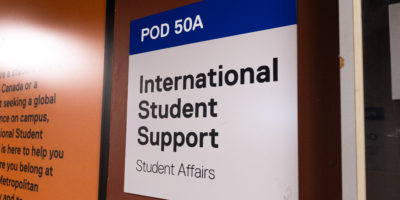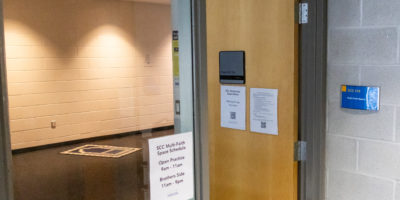By Wojtek Dabrowski and Jessie Stones
The federal government’s decision to pull banks out of the Canada Student Loans program last week has led to finger-pointing among the major players.
While some observers are happy the banks are gone, they’re worried about who may replace them.
“They’re trying to contract out the biggest, baddest collection agency out there,” said Michael Conlon, national chair of the Canadian Federation of Students, although he’s pleased banks won’t be administering the program.
The government decided to handle about 450,000 student loans without the banks and look for help elsewhere after contract talks collapsed last Wednesday.
The government’s offer of more cash wasn’t enough for the Bank of Nova Scotia. After Scotia refused the deal, the two other major banks involved with student loans—the Canadian Imperial Bank of Commerce and Royal Bank—also withdrew.
Since 1995, the government has paid the banks $75-million a year as a risk premium to cover defaulted loans. The government proposed raising the premiums to $155-million after the banks claimed they were losing money.
According to government and bank statistics 26 per cent of students default on their loans. A loan is considered defaulted after three payments aren’t made on time.
But Human Resources Development Canada, the department responsible for student loans, blamed the banks’ lack of interest in the program.
“Too few financial institutions expressed interest in continuing participation and ensuring a viable delivery,” spokesperson Gino Trifiro said. “The preferred option would have been to continue the partnership with the banks.”
The banks say it’s the government that made a new contract impossible.
Bank of Nova Scotia spokesperson Pam Agnew said the old contract wasn’t working, and the new government proposal didn’t do enough to fix the problems.
CIBC spokesperson Susan McDougall agreed. “CIBC was prepared to deliver,” she said.
“We felt at least three financial institutions should be involved,” said Royal Bank spokesperson Jeff Keay, which would distribute losses from defaulted student loans among the competing institutions.
Still, Keay wasn’t disappointed with the outcome.
“We’ll probably stop losing money,” he said, chuckling.
The government is considering contracting companies across North America to handle the loans program.
Conlon is worried companies may take advantage of the situation.
“[Government officials] are looking for the cheapest [loan] provider, and we’re very concerned about what this will do.”












Leave a Reply